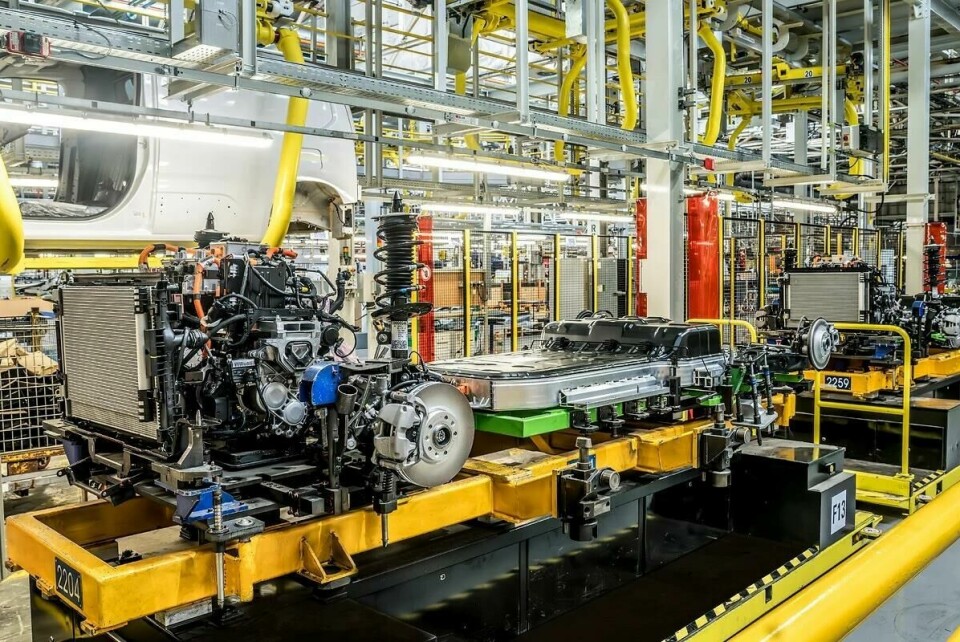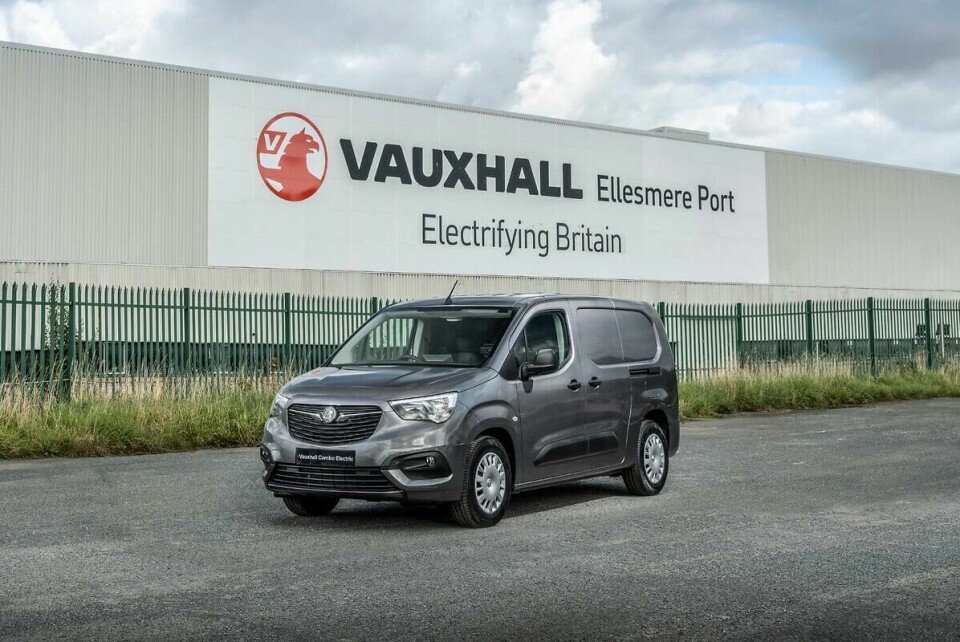Stellantis and the UK government: sabre rattling or crying wolf?
Unhappy with the UK’s ZEV mandate Stellantis has suggested it might cease LCV production in the UK, but is there more to this than legislation?

The UK’s zero emissions vehicle (ZEV) mandate and government’s decision to ban the sale of new ICE or hybrid cars and vans are due to come fully into effect in 2035. Prior to the recent election, the Labour Party had said it would bring the new ICE car ban forward to 2030 but has not confirmed this year. The ZEV mandate requires that each car company has to ensure that 22% of its UK sales this year are zero emissions, ie electric. In reverse only 78% of new car sales this year can be ICE or hybrid powered. And for every vehicle above 78% which a company sells which is ICE or hybrid powered the car company will be fined £15,000. Currently, the plan is for the ZEV ratio increases steadily to 80% for cars and 70% for vans by 2030 and 100% for both in 2035.
OEM’s struggle with EV sales targets
Vehicle companies are struggling to meet this year’s target are concerned that the slowdown in EV sales will make it difficult to reach the rising ZEV ratio in future years. It is also worth emphasising that the ZEV mandate affects sales and not production, at least not directly. The ZEV mandate does not ban and will not ban ICE or hybrid production. Hybrid and maybe a few ICE vehicles will continue to be made in the UK beyond when UK bans the sale of new ICE or hybrid vehicles; many markets to which UK factories export have different (ie later) dates for the ban on ICE or hybrid sales.
Returning to the UK ZEV mandate, at an FT auto conference in May, executives from Ford, Stellantis and VW said that they would not pay fines for selling too many ICE vehicles in the UK. In other words, if they cannot sell enough EVs, they will reduce the number of ICE or hybrid cars available, reducing supply and almost certainly raising prices of those sold in the UK. More recently at an SMMT event in June, Stellantis’ UK managing director raised the prospect of Stellantis pulling out of UK van production because of the demands of the ZEV mandate.
Given that all the cars which Stellantis in the UK are imported, under the Vauxhall, Peogeot, Citroen, Fiat, Alfa Romeo and Jeep names, it is worth asking how the ZEV mandate impacts its two UK factories, which make only vans. Most of these, especially the larger vans made in Luton, are exported. It is true that later this year, Ellesmere Port will start making passenger versions of the van produced there, but currently it makes only commercial vehicles.
This threat received a great deal of attention at the time although in reality, Stellantis did not actually say anything new. It has objected to the ZEV mandate before and hinted or said that it could pull out of UK manufacturing. However, it is worth asking how serious this threat is and whether the future of van production in the UK is wholly or even largely related to the ZEV mandate. It may well suit the company to let people, especially in government, think the link is close or real.

Alternative production options in play
However, the situation is rather more nuanced. First, the two van factories which Stellantis operates in the UK are not the lead plants for the vehicles concerned; the Luton plant is a secondary plant to a factory in France and could well become the third ranked plant for this programme as production of the same van is now ramping up in a third factory Turkey. Stellantis will not close its French plant (it is fully loaded anyway) and while Luton is full at the moment, making c90-100,000 a year, the factory in Turkey has capacity to make more than 200,000 a year but is starting out at c50,000 per year.
Labour and other costs in Turkey are also substantially lower than the UK, and Turkey is actually a very profitable place to make cars and significantly vans. Ford’s Transit factory (actually factories, as there are two) in Turkey can make 500-600k vehicles per year and now that it is also making the Volkswagen Transporter van, it may well fill this factory. This is where economies of scale come into play: Ford’s Turkish factory is more than five times the size of Luton!). The real threat to the Luton van factory is arguably not the ZEV mandate but the significantly lower costs of production in Turkey.
The story for the smaller van made in Ellesmere Port is similar. The lead plant is in Spain, the second plant (which can make nearly twice as many vehicles as Ellesmere Port) is in Portugal, Between them the two Iberian factories could potentially take on Ellesmere Port’s volume; each already has greater economies of scale than the UK plant, and because they are relatively close, they have a common supply base with cheaper logistics costs for their suppliers delivering to both factories. It is worth adding that the local (UK) content of the Ellesmere Port vans is tiny, with most of the parts coming from Spain.
So how likely is it that Stellantis would pull out of van production because of the costs to its business of the ZEV mandate? Sure, it is possible that Stellantis could pull out of the UK, despite never having closed a factory under Carlos Tavares’ leadership. However, if it did this it would likely be for manufacturing cost reasons and the benefits of greater economies of scale at other factories which make the same vehicles as are made in the UK. Stellantis also has some history of “playing off” factories to save costs; for example, as recently as 2022 it planned to use its factory in Kaluga, Russia to supply vans to Western Europe, despite the existence of Luton and the French plant. Some saw this as a bargaining lever with the UK and French unions. However, Russia’s invasion of Ukraine put paid to that idea and while the circumstances are different, for Russia in 2022, you might read Turkey in 2024.
Stellantis’ threat to close to its UK van plants may or may not be real; and while it may suit the company to “base” this threat on problems caused by the ZEV mandate requirements for cars, it may well be that the real issues driving its potential decisions here are rather different.


